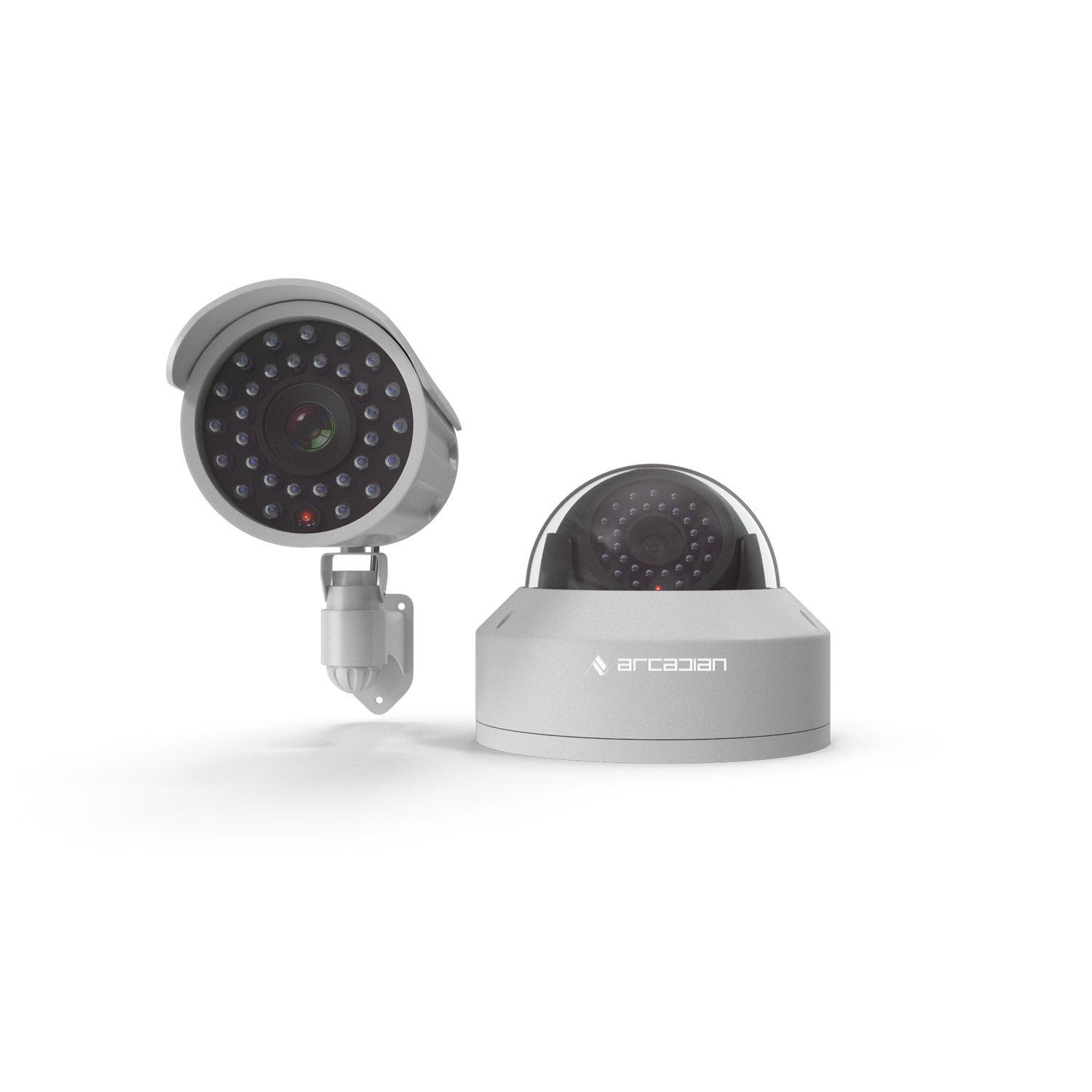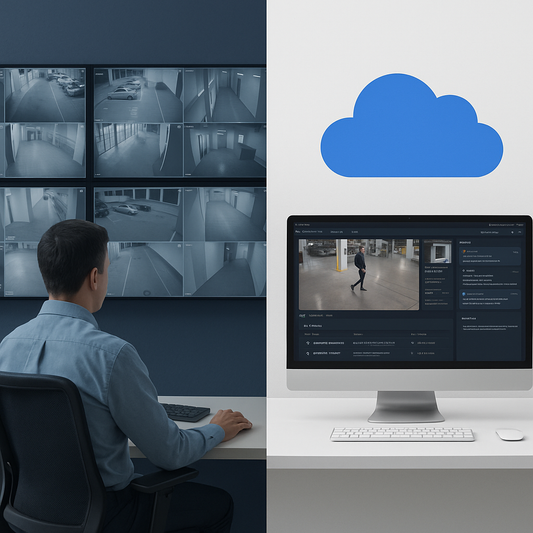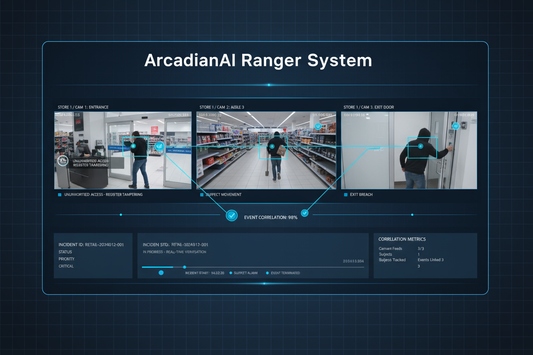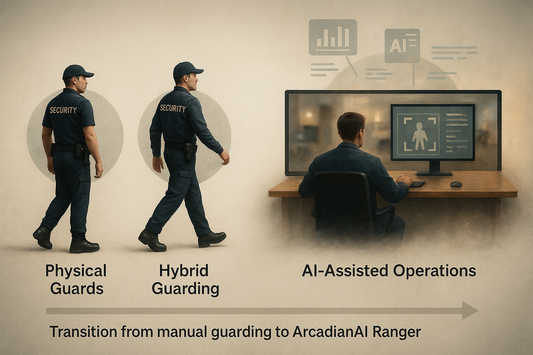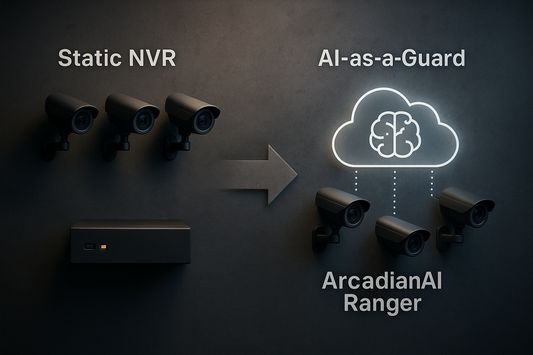How Cloud-Based Surveillance Improves Multi-Site Security
Managing security across multiple sites is a growing challenge for modern businesses. From office campuses and warehouses to retail chains and healthcare institutions, ensuring consistent surveillance, rapid incident response, and centralized control is critical. Enter cloud-based surveillance—a transformative solution reshaping the way multi-site security is implemented and managed. This article...

- What is Cloud-Based Surveillance?
- Why Traditional Surveillance Fails at Multi-Site Management
- Benefits of Cloud-Based Surveillance for Multi-Site Security
- Use Cases of Cloud-Based Surveillance Across Industries
- Retail Chains
- Integrating Cloud-Based Surveillance with Other Security Systems
- Common Myths Around Cloud-Based Surveillance—Debunked!
- Conclusion: Future-Proof Your Business with Cloud-Based Surveillance
Managing security across multiple sites is a growing challenge for modern businesses. From office campuses and warehouses to retail chains and healthcare institutions, ensuring consistent surveillance, rapid incident response, and centralized control is critical. Enter cloud-based surveillance—a transformative solution reshaping the way multi-site security is implemented and managed.
This article dives deep into how cloud-based surveillance improves multi-site security, offering practical insights for business owners, security professionals, and IT managers looking for scalable, efficient, and future-ready security infrastructure.
What is Cloud-Based Surveillance?
Cloud-based surveillance refers to a video security system where video data is stored, managed, and accessed via the cloud, rather than on local servers or hard drives. Unlike traditional systems, these solutions offer real-time access to footage from any device, centralized control panels, and advanced analytics capabilities—all with enhanced data protection.
Also Read: How Cloud-Based Surveillance Enhances Efficiency for Security
Why Traditional Surveillance Fails at Multi-Site Management
Managing multiple security camera systems independently across various locations can lead to:
-
Inefficient data access and sharing
-
Limited real-time monitoring
-
Increased maintenance and infrastructure costs
-
Vulnerability to hardware failure
These challenges make cloud based video surveillance a smart and necessary upgrade for businesses scaling across multiple geographies.
Benefits of Cloud-Based Surveillance for Multi-Site Security
1. Centralized Management from Anywhere
The biggest advantage of cloud-based surveillance for multi-site businesses is centralized access and control. Administrators can:
-
Monitor live feeds from all locations in one unified dashboard
-
Review footage without traveling to each site
-
Assign roles and permissions remotely to staff and security teams
This is especially useful for businesses like retail chains, banks, or logistics companies with numerous branches.
2. Scalable Without Heavy Investment
Unlike traditional systems that require complex local setups, cloud based security camera systems are easily scalable. Businesses can:
-
Add or remove cameras without costly infrastructure upgrades
-
Deploy systems at new locations in hours, not weeks
-
Avoid purchasing local DVRs or NVRs for each location
Whether it’s two sites or two hundred, the system grows with your needs.
3. Real-Time Alerts & Smart Analytics
Many cloud security cameras come equipped with AI-powered features such as:
-
Motion detection
-
Facial recognition
-
License plate recognition
-
Intrusion detection
These capabilities trigger real-time alerts to security teams, helping them act quickly. Suspicious activities across different sites can be flagged instantly.
4. Lower Maintenance and Downtime
Traditional security systems often require regular manual updates and on-site maintenance. With cloud video security:
-
Software updates are automatic
-
Maintenance is managed remotely
-
Downtime is minimized, ensuring round-the-clock surveillance
This ensures peace of mind without having to physically visit each site for troubleshooting.
5. Improved Data Security and Compliance
Cloud-based systems often offer end-to-end encryption, secure access controls, and multi-factor authentication. This ensures that:
-
Only authorized users can view or access footage
-
Data is stored in compliance with industry standards like GDPR or HIPAA
-
Backups are automated, reducing the risk of footage loss
Especially in sectors like healthcare and finance, this is a non-negotiable requirement.
6. Enhanced Collaboration Across Teams
Multi-site businesses often require collaborative security oversight. With cloud-based surveillance:
-
Multiple users can access and analyze footage simultaneously
-
Central security teams can support local personnel in real time
-
Recorded incidents can be easily shared with authorities or internal teams
This leads to faster resolution of incidents and better overall coordination.
7. Cost-Efficient in the Long Run
Initial setup costs for cloud-based surveillance may seem higher, but over time it proves more cost-effective. Here's how:
|
Cost Factor |
Traditional Surveillance |
Cloud-Based Surveillance |
|
Infrastructure |
High |
Low |
|
Maintenance |
Frequent |
Minimal |
|
Scalability |
Expensive |
Easy & Affordable |
|
Data Storage |
Local & Vulnerable |
Cloud & Secure |
|
Upgrades |
Manual |
Automatic |
Businesses save on maintenance, manpower, and hardware—all while getting superior capabilities.
Use Cases of Cloud-Based Surveillance Across Industries
Retail Chains
Track customer behavior, prevent theft, and monitor employee performance across retail stores without being physically present.
Corporate Offices
Ensure secure access, prevent data theft, and monitor sensitive zones from a central dashboard.
Healthcare Facilities
Secure patient data, restrict access to pharmaceuticals, and ensure staff accountability while staying compliant with HIPAA.
Warehousing and Logistics
Monitor movement of goods, secure loading zones in warehouse security, and ensure timely responses to security breaches.
Integrating Cloud-Based Surveillance with Other Security Systems
For an end-to-end solution, your cloud video security should integrate with:
-
Access control systems
-
Intrusion detection alarms
-
Fire safety systems
-
Visitor management solutions
This creates a connected ecosystem, where incidents trigger multiple alerts, offering complete visibility and faster response times.
Common Myths Around Cloud-Based Surveillance—Debunked!
Myth 1: It’s Not Secure
Fact: Cloud providers use enterprise-grade encryption, multi-layered authentication, and redundancy to ensure top-notch security.
Myth 2: It’s Only for Large Businesses
Fact: Cloud-based systems can be scaled to fit startups, SMEs, and growing enterprises with just a few sites.
Myth 3: It’s Too Expensive
Fact: Over time, you save money on maintenance, hardware, and upgrades—making it more affordable than you think.
Also Read: How Cloud-Based Surveillance Helps Banks Prevent Fraud
Conclusion: Future-Proof Your Business with Cloud-Based Surveillance
In a world where businesses operate across cities—and even continents—cloud-based surveillance offers a smart, scalable, and secure way to manage multi-site security.
From centralized access and AI analytics to lower operational costs and enhanced safety, the advantages are clear. Whether you're managing 5 locations or 500, investing in a cloud based security camera system ensures you're not just reacting to threats, but staying ahead of them.
If you're ready to take your business security to the next level, explore how cloud-based surveillance can be tailored to your unique needs.
Start protecting your multi-site operations with the power of AI security.

Security is like insurance—until you need it, you don’t think about it.
But when something goes wrong? Break-ins, theft, liability claims—suddenly, it’s all you think about.
ArcadianAI upgrades your security to the AI era—no new hardware, no sky-high costs, just smart protection that works.
→ Stop security incidents before they happen
→ Cut security costs without cutting corners
→ Run your business without the worry
Because the best security isn’t reactive—it’s proactive.
